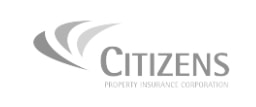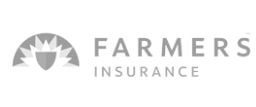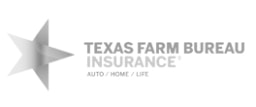Determine if Becoming an Insurance Adjuster is Right for You
Before processing claims, insurance companies send agents to investigate and determine the monetary value of damage, loss, or injury. These individuals are known as claims adjusters.
If you're interested in this occupation, you'll be glad to know it has relatively simple educational and training requirements.
It's possible to start with a high school diploma and a few weeks coaching. You can then gain additional expertise through on-the-job training.
If you're interested in this occupation, you'll be glad to know it has relatively simple educational and training requirements.
It's possible to start with a high school diploma and a few weeks coaching. You can then gain additional expertise through on-the-job training.
How to Determine If Insurance Adjusting Is For You
These five steps will help you start a career in this exciting field.
1. Confirm Your Interest in Insurance Adjusting
This occupation is one of America’s hidden gems because it’s an established industry with superb earning potential. However, the following reasons make it unsuitable for everyone:
While insurance claims adjusters face some challenges, it’s a fast-evolving industry. Employers are constantly on the lookout for fresh blood to replace retiring professionals.
This occupation is one of America’s hidden gems because it’s an established industry with superb earning potential. However, the following reasons make it unsuitable for everyone:
- It utilizes both soft and hard skills: You qualify to be an adjuster if you're at least 18 years old, have a valid driver's license, and are a legitimate resident of your state. Although these hard skills are easy to achieve, the soft qualities will make you stand out. They include self-discipline, excellent communication skills, and a strong work ethic.
- It’s a challenging but fulfilling career: This occupation pays well considering the simple entry requirements. You’ll also experience a rewarding feeling for helping the insured recover after a devastating loss.
- Demand for insurance adjusters: This is a guaranteed long-term career because of ever-growing insurance claims. You can earn an annual salary in the $45k to $80k range through direct employment. This figure can rise to over $100k if you become an independent claims adjuster.
- Natural disasters provide challenges and opportunities: Annual events such as hurricanes and flooding result in several claims. A skilled adjuster can earn more during these spikes in demand than they’d usually earn in a whole year. However, you must be willing to travel on short notice and work in demanding situations.
While insurance claims adjusters face some challenges, it’s a fast-evolving industry. Employers are constantly on the lookout for fresh blood to replace retiring professionals.
2. Determine Type of Adjuster You are Interested in: Field Adjuster or Desk Adjuster
Determining which type of adjuster career is right for you will depend on what is required for that position. The job of a field adjuster is to travel to the location and complete an inspection. This tends to be physical on the body and work 6-7 days a week.
While some like working outside and being in location, others may prefer sitting behind a desk. That type of adjuster is called a desk adjuster. A desk adjuster is a great starting place to learn the claim process. This is also a great option for those who do not want to perform the physical demails, like a field adjuster.
Determining which type of adjuster career is right for you will depend on what is required for that position. The job of a field adjuster is to travel to the location and complete an inspection. This tends to be physical on the body and work 6-7 days a week.
While some like working outside and being in location, others may prefer sitting behind a desk. That type of adjuster is called a desk adjuster. A desk adjuster is a great starting place to learn the claim process. This is also a great option for those who do not want to perform the physical demails, like a field adjuster.
3. Pick Your Specialization
Most workers in this occupation choose to either become staff or independent adjusters. The first type works year-round, often full-time, for an insurance company. Independent adjusters, on the other hand, work for one or more firms on a contractual basis. Such agencies usually work on behalf of multiple insurance companies.
If you choose to become a catastrophe adjuster, it means you'll be regularly traveling to devastated areas. As you gain experience, more specialization options arise, such as auto, worker's comp, and marine claims.
Most workers in this occupation choose to either become staff or independent adjusters. The first type works year-round, often full-time, for an insurance company. Independent adjusters, on the other hand, work for one or more firms on a contractual basis. Such agencies usually work on behalf of multiple insurance companies.
If you choose to become a catastrophe adjuster, it means you'll be regularly traveling to devastated areas. As you gain experience, more specialization options arise, such as auto, worker's comp, and marine claims.
4. Apply for an Insurance Adjuster License
The majority of states require a license for state adjusters. If you live in one, you'll need to sign up for a course and pass the state licensing exam. Even if it's not a necessity, a license is still vital to improving your career prospects. Most Independent firms demand that their applicants be licensed, regardless of the location.
While licensing requirements differ by state, most involve a formal application and fee payment after passing the exam. After receiving this certification, it's also advisable to apply for additional licenses in the jurisdiction of operation.
For instance, the Eastern and Gulf Coast states are favorites because they usually process high claims volumes. Most states don't require a test for a reciprocal license. You only need to fill an application form and pay the relevant fees.
The majority of states require a license for state adjusters. If you live in one, you'll need to sign up for a course and pass the state licensing exam. Even if it's not a necessity, a license is still vital to improving your career prospects. Most Independent firms demand that their applicants be licensed, regardless of the location.
While licensing requirements differ by state, most involve a formal application and fee payment after passing the exam. After receiving this certification, it's also advisable to apply for additional licenses in the jurisdiction of operation.
For instance, the Eastern and Gulf Coast states are favorites because they usually process high claims volumes. Most states don't require a test for a reciprocal license. You only need to fill an application form and pay the relevant fees.
5. Master the Most Requisite Skills
Receiving your license is the first step of a fulfilling career. An essential additional skill is software training, which helps you understand industry-specific apps such as Xactimate. This tool is one of the most popular software for adjusting firms because it improves your appraisal skills.
Some insurers also require specific certifications before handling their claims. Once you receive it, your employer can recommend additional training where necessary. It’s also advisable to get mentorship from a veteran adjuster, who’ll show you some hidden skills and tools.
Receiving your license is the first step of a fulfilling career. An essential additional skill is software training, which helps you understand industry-specific apps such as Xactimate. This tool is one of the most popular software for adjusting firms because it improves your appraisal skills.
Some insurers also require specific certifications before handling their claims. Once you receive it, your employer can recommend additional training where necessary. It’s also advisable to get mentorship from a veteran adjuster, who’ll show you some hidden skills and tools.
6. Starting Your Career as an Insurance Adjuster
Once you have all the relevant licenses and industry certifications, it's time to embark on a job search. Look for openings at local and regional adjusting firms and contact their HR departments.
Even as you conduct your job search, continue expanding your knowledge by signing up for related courses. Remember to follow up on previous job applications. Other vital skills include networking and keeping your licenses compliant. Be ready to deploy on short notice, especially if you receive a job offer during catastrophe season.
Once you have all the relevant licenses and industry certifications, it's time to embark on a job search. Look for openings at local and regional adjusting firms and contact their HR departments.
Even as you conduct your job search, continue expanding your knowledge by signing up for related courses. Remember to follow up on previous job applications. Other vital skills include networking and keeping your licenses compliant. Be ready to deploy on short notice, especially if you receive a job offer during catastrophe season.
Get Started on the Right Path
A job as an insurance adjuster has the potential to turn into a lifelong career. Visit our website at www.qaadjusteracademy.com for more information.



















